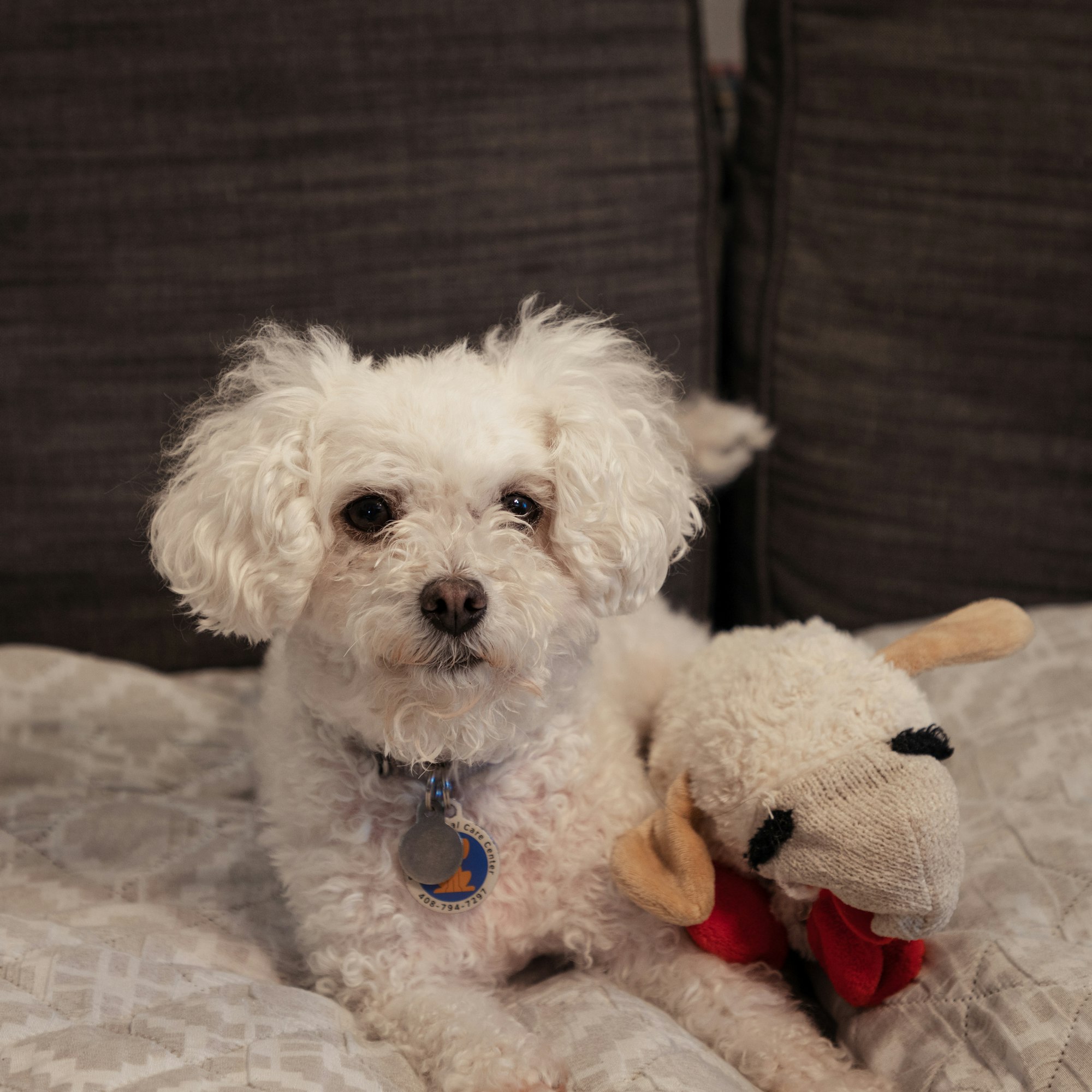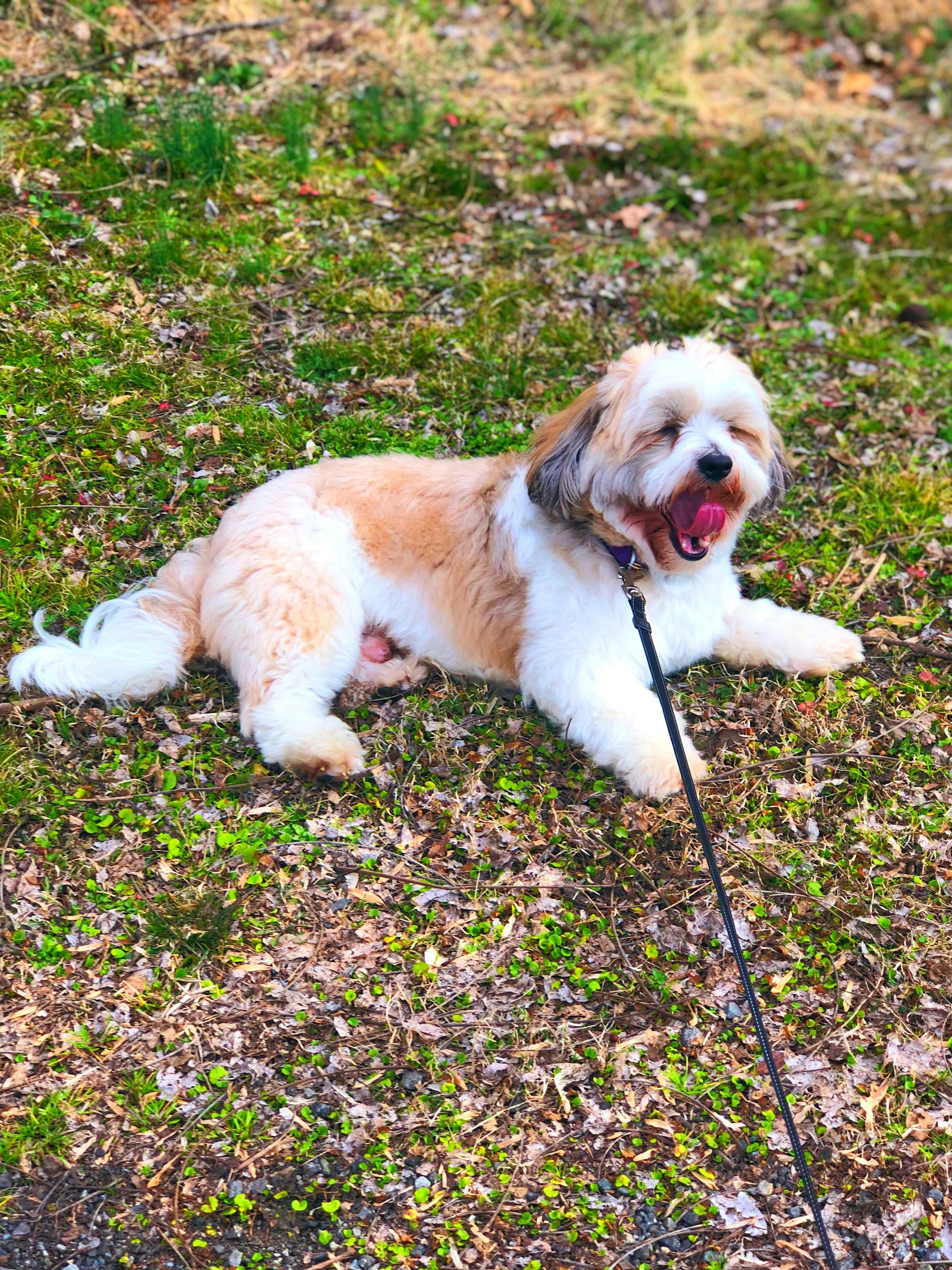Are you looking for a furry friend that combines the charm and playfulness of a Maltese with the traits of another dog breed? If so, you're in luck! Maltese mixes, also known as designer dogs or hybrid breeds, are becoming increasingly popular among dog lovers. These adorable pups inherit the best qualities from both parent breeds, creating unique and lovable companions. In this article, we will explore the world of Maltese mixes, their characteristics, the popular breeds they are mixed with, and why they make fantastic pets.
What Are Maltese Mixes?
Maltese mixes are crossbreeds that combine the Maltese breed with another dog breed. They are bred intentionally to create dogs that possess desirable traits from both parent breeds. These adorable pups inherit the Maltese's affectionate nature, playful personality, and distinctive appearance, while also incorporating the characteristics of the other breed involved in the mix.

Benefits of Owning a Maltese Mix
Owning a Maltese mix comes with a variety of benefits. These delightful dogs offer:
· Unique appearances: Maltese mixes come in a range of sizes, colors, and coat types. Each mix has its distinct look, making them visually captivating and appealing.
· Affectionate companionship: Maltese mixes are known for their loving and loyal nature. They form strong bonds with their owners and enjoy spending quality time with them.
· Playful personalities: These hybrid dogs have an innate zest for life. They love to play, explore, and engage in activities that keep them mentally and physically stimulated.
· Versatility: Maltese mixes can adapt well to different living situations. Whether you reside in an apartment or have a spacious home, they are flexible and content as long as they receive proper care and attention.
· Reduced health issues: Crossbreeding can help reduce the occurrence of certain genetic health problems that are prevalent in purebred dogs. Maltese mixes often enjoy better overall health and longevity.
Popular Maltese Mix Breeds
Several popular Maltese mix breeds have gained popularity among dog enthusiasts. Let's take a closer look at some of them:
1. Maltipoo
The Maltipoo is a cross between a Maltese and a Poodle. These small and affectionate dogs inherit the intelligence and hypoallergenic coat of the Poodle, along with the playful and gentle nature of the Maltese. Maltipoos are known for their friendly demeanor and make wonderful companions for individuals and families alike.
2. Maltese Shih Tzu (Malshi)
The Maltese Shih Tzu also referred to as the Malshi, is a mix of a Maltese and a Shih Tzu. These adorable dogs combine the spunky personality of the Maltese with the charming and affectionate nature of the Shih Tzu. Malshis are known for their loyalty, and their hypoallergenic coats make them suitable for people with allergies.
3. Morkie
The Morkie is a crossbreed between a Maltese and a Yorkshire Terrier. These tiny dogs inherit the intelligence, loyalty, and alertness of the Yorkshire Terrier, while also possessing the Maltese's sweet and loving temperament. Morkies are known for their lively and energetic nature, making them great companions for active individuals or families.
4. Maltese Yorkie (Morkie)

The Maltese Yorkie, commonly known as Morkie, is a mix between a Maltese and a Yorkshire Terrier. These small and charming dogs inherit the best traits from both breeds, including intelligence, playfulness, and loyalty. Morkies are popular for their adorable appearance and affectionate nature.
5. Maltese Poodle (Maltipoo)
The Maltese Poodle, or Maltipoo, is a cross between a Maltese and a Poodle. These intelligent and friendly dogs combine the hypoallergenic coat of the Poodle with the sociable nature of the Maltese. Maltipoos come in various sizes and dog coat colors, making them versatile and attractive pets.
Characteristics of Maltese Mixes
Maltese mixes share several common characteristics that make them beloved companions. Here are some notable traits you can expect from these adorable dogs:
· Size and weight: The size of a Maltese mix can vary depending on the breed they are mixed with. They can range from small to medium-sized dogs.
· Coat and grooming: Maltese mixes often have soft, silky, and low-shedding coats. However, the coat type may vary depending on the specific mix. Regular grooming is necessary to keep their coats in excellent condition.
· Temperament: Maltese mixes are typically friendly, affectionate, and sociable dogs. They enjoy being around people and thrive on human companionship.
· Energy levels: While energy levels can differ among individual dogs, most Maltese mixes have moderate energy levels. Regular exercise and mental stimulation are essential to keep them happy and healthy.
Training and Socialization
Training and socialization are essential aspects of raising a well-behaved and well-adjusted happy dog, regardless of the breed or mix. Here are some key points to consider when training and socializing Maltese mixes:
· Start early: Begin training and socialization as soon as you bring your Maltese mix puppy home. Early exposure to various people, animals, sounds, and environments will help them develop into confident, well-mannered dogs.
· Positive reinforcement: Use positive reinforcement techniques, such as rewards, praise, and treats, to motivate and encourage your Maltese mix during training. They respond well to positive reinforcement and are eager to please their owners.
· Basic obedience training: Teach your Maltese mix basic commands like sit, stay, come, and down. This will establish a foundation for good behavior and improve their overall responsiveness.
· Leash training: Train your Maltese mix to walk on a leash from an early age. Start with short, positive sessions, and gradually increase the duration and distance. Positive reinforcement and patience will help them learn to walk politely on a leash.

· Socialize extensively: Expose your Maltese mix to different people, dogs, and environments in a controlled and positive manner. This will help them become comfortable and confident in various social situations and prevent fear or aggression issues.
· Consistency and patience: Training takes time and consistency. Be patient and consistent with your training efforts, and remember to reinforce positive behaviors consistently.
· Seek professional help if needed: If you encounter challenges or specific behavior issues, consider seeking guidance from a professional dog trainer or behaviorist who has experience working with small breeds or Maltese mixes.
Grooming and Maintenance
Maltese mixes, like the Maltese breed, often have a beautiful and luxurious coat that requires regular grooming to keep it healthy and looking its best. Here are some grooming and maintenance considerations for Maltese mixes:
· Coat care: Depending on the specific mix, the coat of a Maltese mix may require regular brushing to prevent matting and tangling. Some mixes may have a low-shedding or hypoallergenic coat, while others may shed more. Regular brushing helps remove loose hair and keeps the coat free from tangles and debris.
· Bathing: Maltese mixes typically benefit from regular bathing to keep their coat and skin clean. However, excessive bathing can strip the coat of its natural oils, so it's necessary to strike a balance. Consult with a veterinarian or professional groomer for guidance on an appropriate bathing schedule and use dog-specific shampoos.
· Trimming: Regular trimming of the hair around the eyes, ears, and paws is critical to prevent irritation and maintain cleanliness. Some Maltese mixes may also require occasional haircuts to keep their coat at a manageable length.
· Dental care: Like all dogs, dental care is crucial for Maltese mixes. Regular teeth brushing with dog-specific toothpaste and regular dental check-ups can help prevent dental issues and maintain good oral hygiene.
· Nail care: Keep your Maltese mix's nails trimmed to a proper length to prevent discomfort or issues with walking. If you are not experienced with nail trimming, consider seeking the assistance of a professional groomer or veterinarian.
· Ear care: Maltese mixes, particularly those with floppy ears, may be prone to ear infections. Regularly check and clean their ears to remove wax buildup or debris. Consult with a veterinarian for proper ear-cleaning techniques and recommended products.
Remember to establish a grooming routine early on in your Maltese mix's life to make it a positive experience for them. Regular grooming sessions also provide an opportunity to check for any skin issues, lumps, or abnormalities that may require veterinary attention.
Health Considerations
When considering a Maltese mix puppy, it's significant to be aware of potential health considerations that can affect both the Maltese breed and the other breed involved in the mix. Here are some health considerations to keep in mind:

· Genetic Health Testing: Reputable breeders will often conduct genetic health testing on their breeding dogs to screen for inherited health conditions. This helps ensure that the puppies have a lower risk of inheriting certain genetic disorders.
· Patellar Luxation: Maltese mixes, like Maltese dogs, may be prone to patellar luxation, a condition where the kneecap can dislocate. Regular exercise and maintaining a healthy weight can help reduce the risk of this condition.
· Dental Issues: Small breeds, including Maltese mixes, are often prone to dental problems such as tooth decay and gum disease. Regular dental care, including teeth brushing and professional cleanings, is essential.
· Eye Problems: Both Maltese and certain other breeds can be susceptible to various eye issues such as cataracts, progressive retinal atrophy (PRA), and dry eye. It's essential to inquire about the health history of the parents and ask the breeder if they have conducted any eye examinations.
· Respiratory Problems: Maltese mixes that inherit certain characteristics from flat-faced breeds (such as the Shih Tzu or Pug) may be prone to respiratory issues like brachycephalic airway syndrome. It's crucial to inquire about the breathing health of the parents and ensure the breeder prioritizes the well-being of their dogs.
· Allergies: Some Maltese mixes may be prone to allergies, which can manifest as skin irritations, itching, or ear infections. While it may not be possible to predict or prevent allergies, it's required to inquire about any known allergies in the parent dogs and ensure proper care is taken to manage any potential allergies in the puppy.
It's recommended to research and choose a reputable breeder who focuses on breeding healthy dogs and conducts appropriate health screenings. Responsible breeders prioritize the well-being of their dogs and will provide you with health clearances and documentation for the parent dogs.
Finding a Maltese Mix Puppy:
When searching for a Maltese mix puppy, consider the following options:
· Reputable Breeders: Look for reputable breeders who specialize in Maltese mixes. Ensure that the breeder follows ethical breeding practices, conducts health screenings, and provides proper care for their dogs. Visit the breeder's facility if possible and ask questions about their breeding program and the health and temperament of their dogs.
· Rescue Organizations: Check with local animal shelters or Maltese rescue organizations. They may occasionally have Maltese mixes available for adoption. Adopting a rescued dog not only gives them a loving home but also helps alleviate the burden on shelters and reduces the demand for irresponsible breeding.
· Online Platforms: Online platforms such as reputable pet adoption websites or breed-specific forums may provide listings of Maltese mix puppies available for adoption or sale. Exercise caution when using online platforms, and research the sellers/breeders thoroughly before making a decision.
When selecting a puppy, consider their health, temperament, and compatibility with your lifestyle. Spend time interacting with the puppy and observing their behavior. A responsible breeder or rescue organization will be willing to answer your questions, provide health clearances, and offer support throughout the adoption process.

Remember that acquiring a puppy is a long-term commitment, and responsible ownership involves providing proper care, training, and a loving environment throughout the dog's life.
Conclusion
Maltese mixes are incredibly charming and unique companions that combine the best traits of the Maltese breed with another breed. These lovable good family dogs bring joy, loyalty, and endless love to their owners' lives. Whether you choose a Maltipoo, Malshi, Morkie, or any other Maltese mix, you're sure to have a delightful and devoted furry friend by your side.
FAQs
1. Can Maltese mixes adapt to apartment living?
· Yes, Maltese mixes are well-suited for apartment living. Their size and moderate exercise needs make them adaptable to smaller living spaces.
2. Are Maltese mixes hypoallergenic?
· Many Maltese mixes have hypoallergenic coats, making them a suitable choice for individuals with allergies. However, it's important to note that individual allergies may vary.
3. How do Maltese mixes get along with children and other pets?
· Maltese mixes are generally friendly and can get along well with children and other pets when properly socialized. However, it's important to supervise interactions and teach children how to interact gently with dogs.
4. What is the average lifespan of a Maltese mix?
· The average lifespan of a Maltese mix can vary depending on factors such as size, genetics, and overall health. On average, they can live between 12 to 15 years.
5. Are Maltese mixes easy to train?
· Maltese mixes are intelligent and eager to please, which makes them relatively easy to train. Consistency, positive reinforcement, and early socialization are key to their training success.






